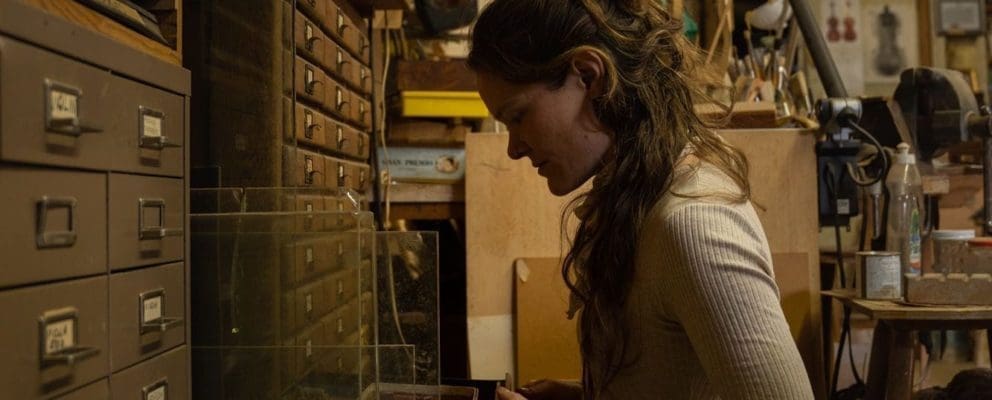An Ambitious Project Underway
Each year the Society of Arts + Crafts awards the Mineck Fellowship, the coveted $25 thousand award from the John Mineck Foundation, established to support furniture craftsmen in their art. Last year’s award went to Aspen Golann, who had submitted an application that was ambitious in scope but which had an objective that aligned closely with John Mineck’s desire — and the Society of Arts + Crafts’ mission — to enable other furniture makers to pursue their craft.
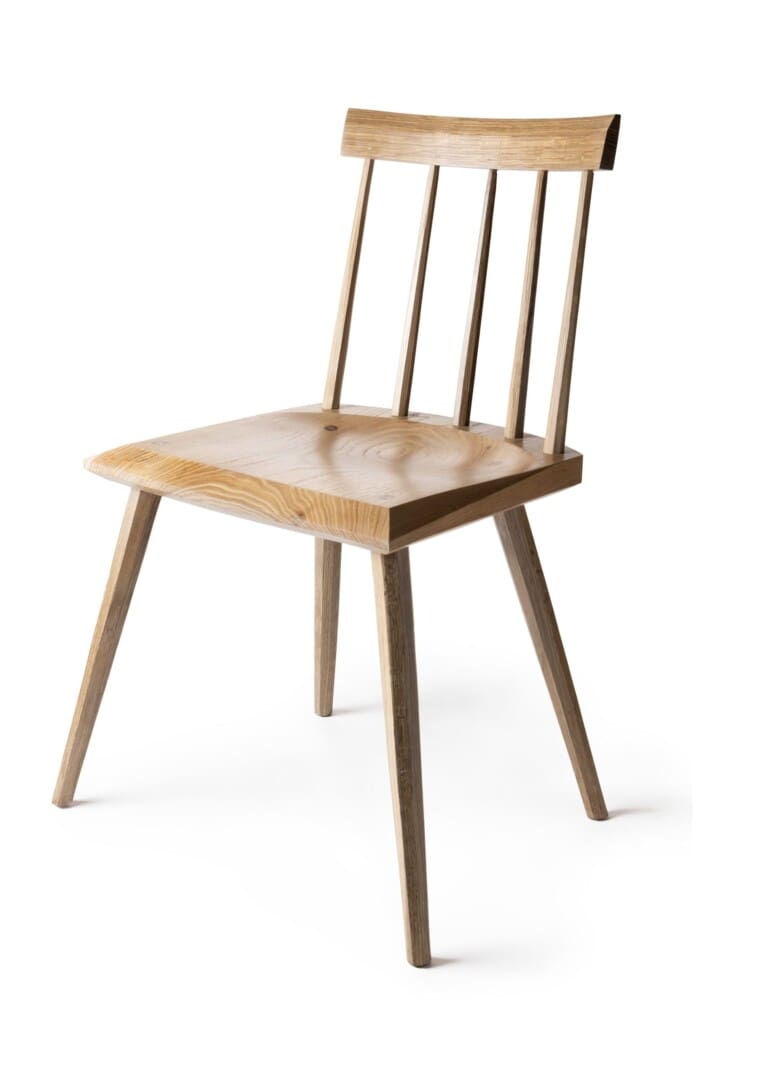
“A Very Simple Chair” by Golann
Golann’s work is a combination of traditional craftsmanship and references to 18th- and 19th-century forms, combined with imagery that speaks to a modern perspective of the norms, values, and beliefs that shaped the pieces and their function. Specifically she was inspired by the historic furniture-maker as a male-dominated profession, and how that lens and those beliefs affected the forms of the pieces they made for others.
And while her work is noteworthy in itself, what she wanted to do with the fellowship award was a response to the barriers inherent in this age-old profession: to make this traditional craft accessible to historically underrepresented populations, specifically women and BIPOC audiences, by including them in multiple aspects of the process. As part of this prize, awardees are required to submit a six-month update. Her report outlined the following progress:
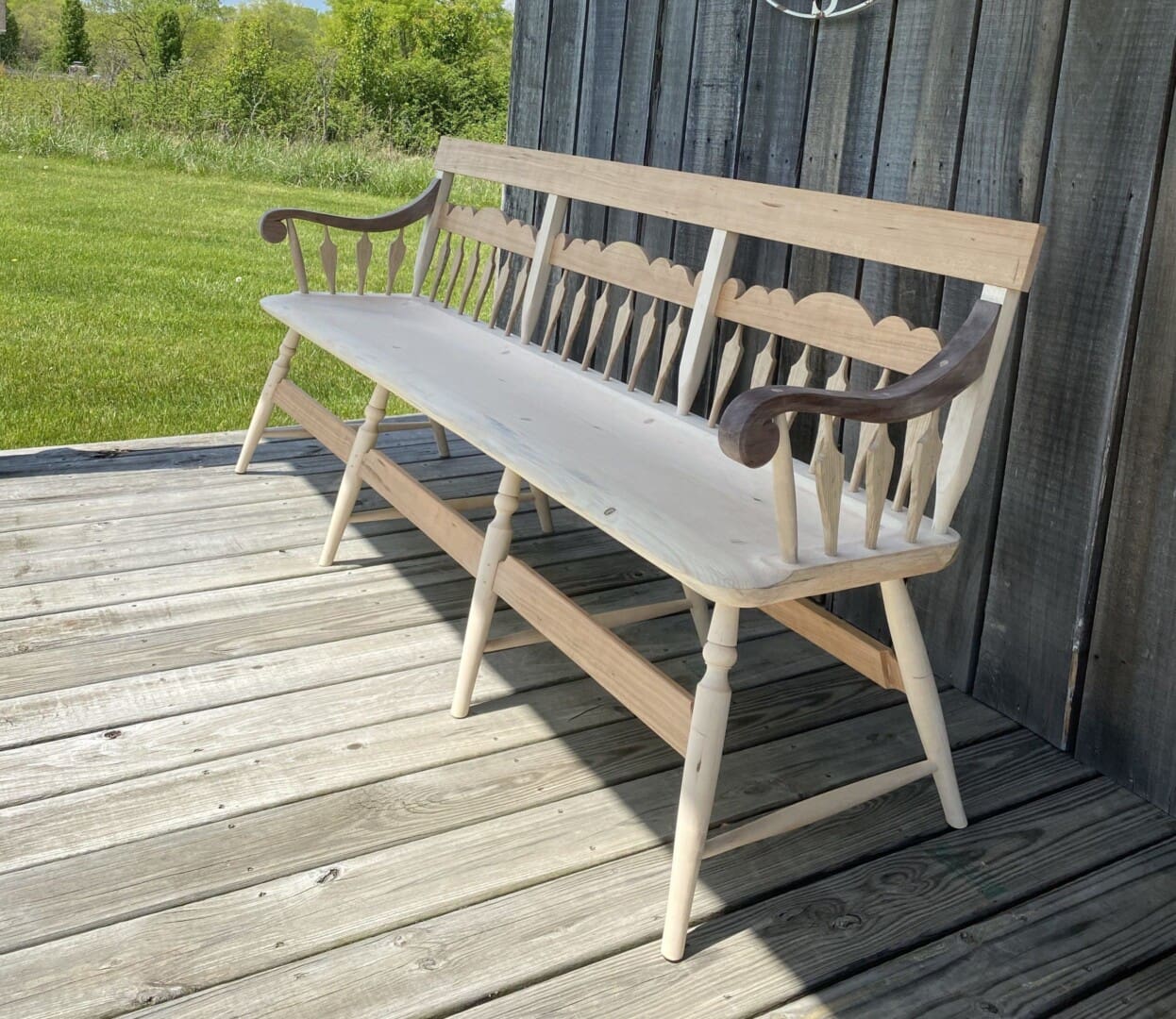
Work in process: a replica of a settee waiting for final decoration
- Designing a piece (“A Pretty Simple Chair”) with the goal “to create an empowering and accessible entry point to chairmaking for under-represented beginners” which both requires a limited set of tools and can “serve as a jumping-off point for students to design their own work”.
- Creating advanced work “that speaks to marginalized experiences”: Golann has collaborated on a replica of a historic settee which she will paint using “traditional language to talk about contemporary social issues, using the form of the settee as a canvas.” She has other projects planned in this vein.
- Offering sliding-scale classes to Women, Non-Gender Binary, and BIPOC woodworkers.
- Working with Winterthur to create a curriculum for a potential program for “female, BIPOC & non-gender binary students to learn to build chairs based on historical models at no cost.”
-
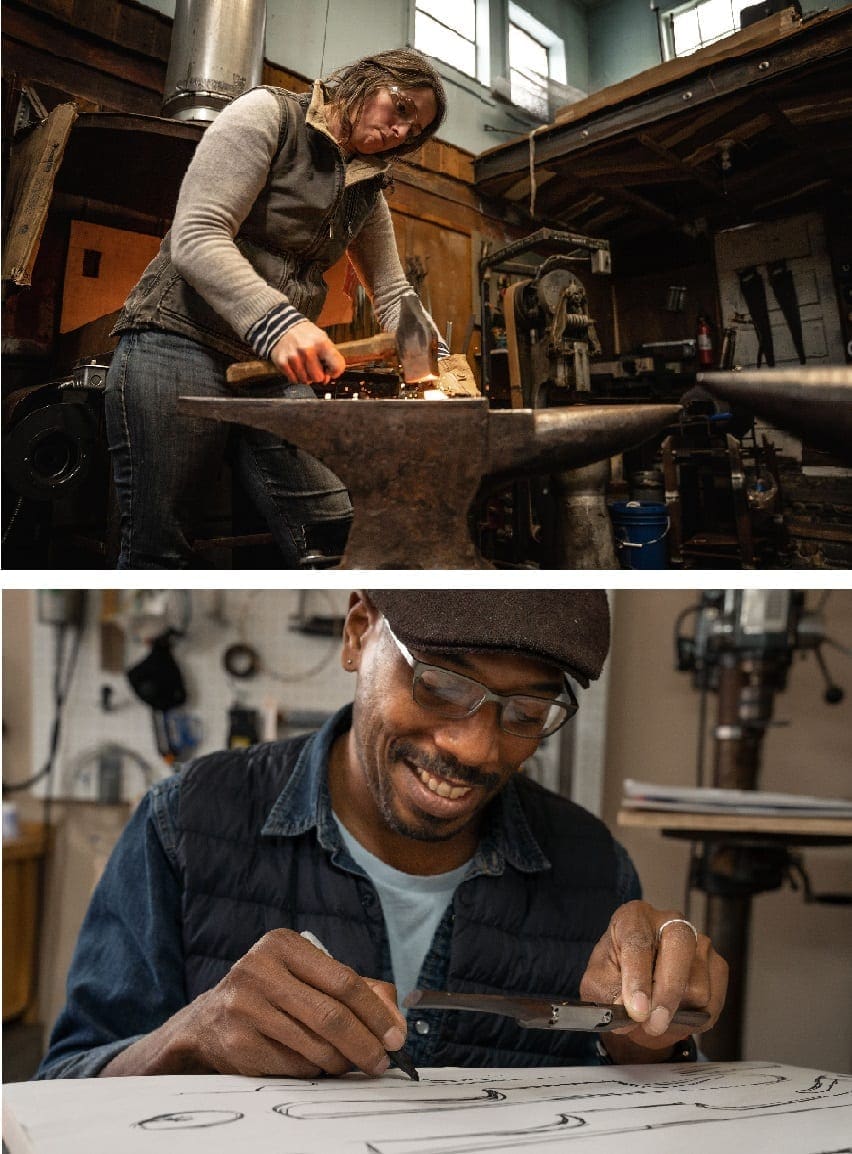
Meghan Martin and David Clemons were two metalworkers commissioned to create specialized tools for “A Beginner’s Toolbox”
Developing a student’s toolbox for chairmaking with highly specific tools sourced from women and BIPOC toolmakers, who expert chairmaker’s knowledge for a good understanding of their design. Advisory sessions were held over Zoom and the tools are scheduled to be completed by the end of August.
- Creating the Tool Redistribution Project, which aimed to connect the tools from retiring woodworkers to create tool “scholarships” to emerging furniture makers; this involved getting donations, developing an application process and a contract. A website with an application is in the works.
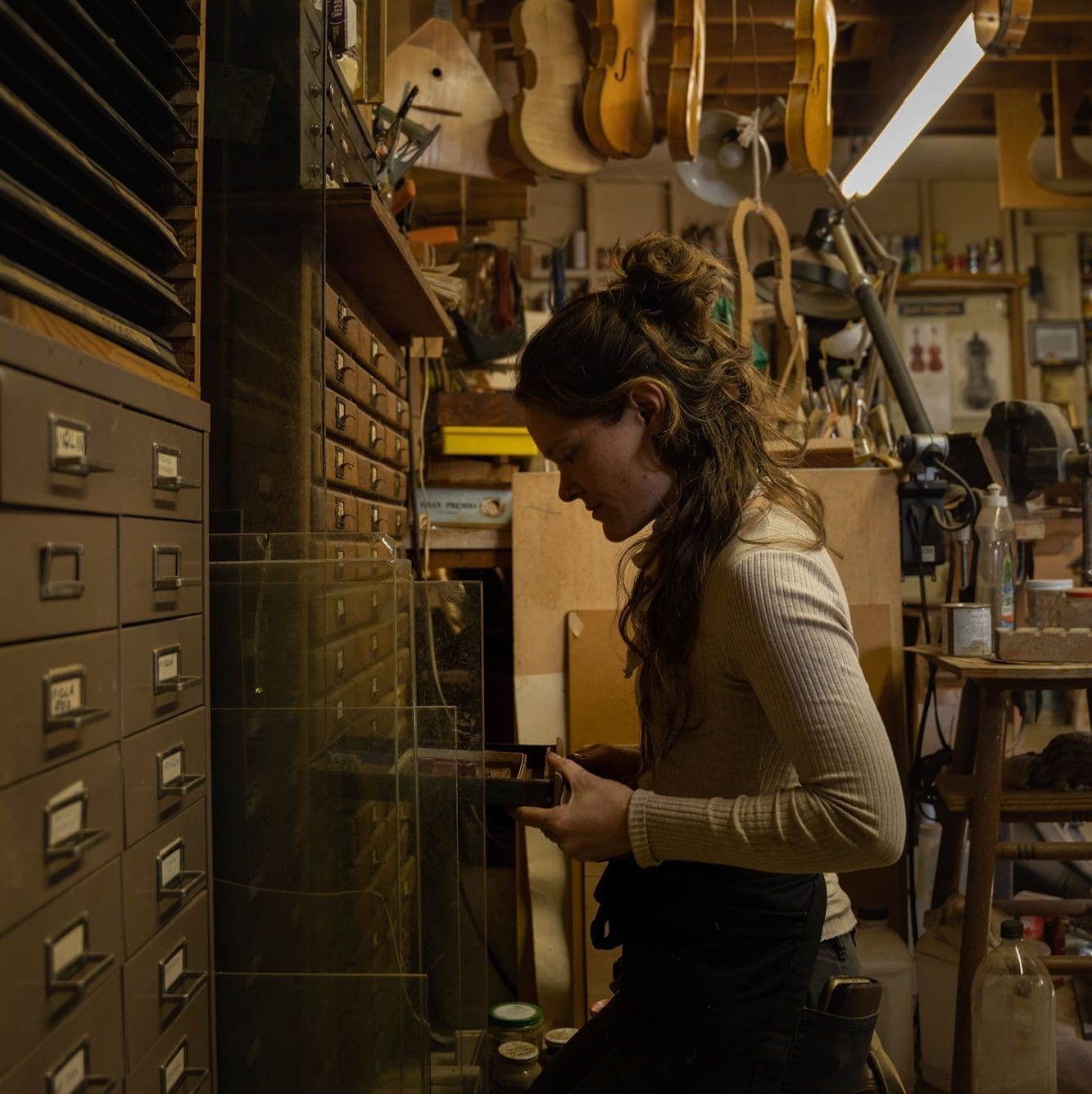
Golann viewing her first donation for “The Tool Redistribution Project”
Golann, like the rest of the world, had to adjust her plans to the constraints of the pandemic, but “found that virtual programming is very effective and powerful for beginners and experienced makers alike and increases access by dissolving traditional barriers.”
Golann sums up her experience: “Over the course of the last six months this grant has allowed me to pursue mentorship, design new work, knit together members of disparate making communities through a mutual love of tools, and soon to introduce my first group of in-person students to the joys and challenges of chairmaking. By the end of the grant period I hope that there will also be a first recipient of a very fine collection of luthiery tools that will support a lifetime in the craft. All these incredible experiences and opportunities, for myself and others in the woodworking and toolmaking community, would not have been possible without the generous support of The Society of Arts + Crafts and The Mineck Foundation. I am deeply grateful and look forward to the next six months of design, teaching and organizing with great hope and enthusiasm.”
The Society of Arts + Crafts is also grateful that such good work has been done to spread appreciation, skills, and access to craft to those who may never have had the opportunity. We are certain that John Mineck would be very glad that this project was carried out in his fellowship’s name, and we look forward to seeing the ongoing results of this comprehensive effort.
Read more about Aspen here.


